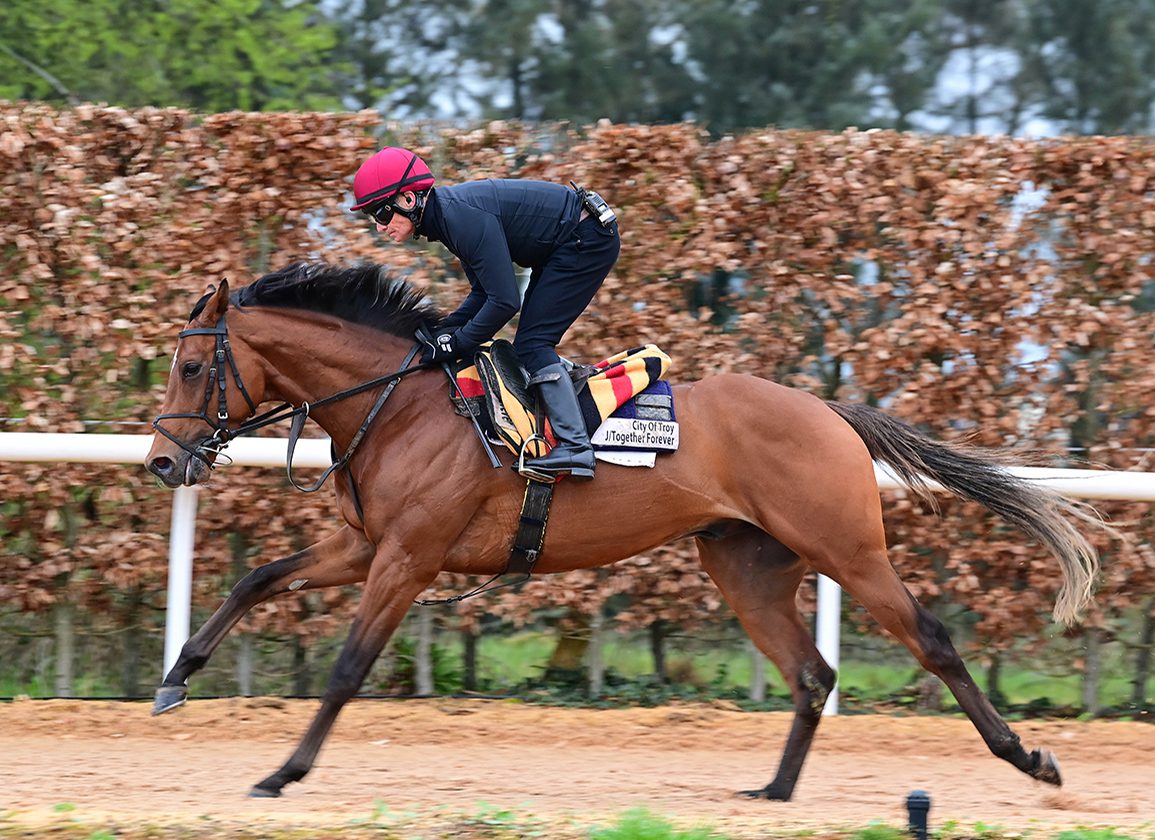By Paul Hayward
The phrase “we'll never see his or her like again” is poignant, heartfelt, and often not true. To say the all-time greatest in sport has already been and gone traps us in the past.
When Frankel won the 2011 2,000 Guineas with radiant ease I called the sports desk of The Observer from the football match I had been sent to cover and urged them to clear the decks for their Newmarket report.
“The 2,000 Guineas isn't meant to be won like that,” I told my sports editor. A wonder horse had blazed into racing history and we needed to do it justice. The performance (never mind the result) demanded more than the standard 500-word account. A wise man, my old boss avoided journalism's cardinal sin of under-selling a great story.
Painted on the canvas of the following day's Observer was Frankel in his trailblazing pomp. And on that day the first colts' Classic acquired a gold standard for the modern age. Across Frankel's 14 wins (10 at Group 1 level) a taboo was laid down. You could say a horse was good or even great but to compare it to Frankel was heresy. Until, that is, City Of Troy came along.
With the usual caveat that the future stud values of these good horses is always a consideration, the connection made between City Of Troy and Frankel by his part-owner Michael Tabor after last year's Dewhurst Stakes was the boldest use of the F-word in the decade or so since Sir Henry Cecil's equine masterpiece retired. “He really is our Frankel,” is the way Tabor put it.
The point is that we have to believe an equal or even more
illustrious horse may one day come along
When you re-watch both races, you see once more why this is the riskiest juxtaposition in town. City Of Troy made all in the Dewhurst Stakes for two-year-olds and surged away in the final furlong. In a Classic, Frankel obliterated the opposition from stride one.
Two lines from that 2011 racecourse commentary are immortal.
“At halfway Frankel is almost 10 lengths clear!”
And…
“At the Bushes, Frankel is 15 lengths clear!”
Not normal. In fact – barely comprehensible.
But be quick if you want to have the pub debate. If City Of Troy wins the Guineas his career path will diverge from Frankel's, rendering a direct comparison obsolete. He has been mentioned as a potential Triple Crown challenger – a quest the team's Camelot narrowly failed to complete in 2012 – while a trip to Saratoga for the Travers Stakes has also been mooted by his trainer.
If Frankel's all-time No 1 standing has an exploitable crack, the story of Sea The Stars shows where it is. Two years before Henry Cecil's parting gift to racing, Sea The Stars won the 2,000 Guineas, Derby, Eclipse, International Stakes, Irish Champion Stakes and Prix de l'Arc de Triomphe, from 8-12 furlongs, from spring to autumn, from England to Ireland to France. In my book Frankel's majesty is unsurpassable. Equally unmoveable is the fact that he never raced beyond an extended mile and a quarter and ran only in England.
Sea The Stars displayed greater versatility. City Of Troy may do so too. His pedigree and racing style suggest enough speed to win a Guineas and sufficient stamina to thrive at middle-distance. Frankel's offspring have won races across the distance scale. He, too, might have stayed a mile and a half but was never asked to. Cecil's genius in teaching him to settle was fully tested only in his last two outings, at York and Ascot, on Champions Day.
Taboos close off the possibility that anything could be better than the best thing you think you've ever seen. They enshrine the past as unsurpassable and trap a sport in nostalgia.
Tennis fans probably thought Borg v McEnroe v Connors would never be beaten. Then along came Federer v Nadal v Djokovic v Murray. Aficionados debated whether Pele or Maradona had set an unmatchable benchmark for football until Messi and Ronaldo came along.
Emotion and subjectivity fuel these debates. People form personal allegiances to horses and humans and rush to the barricades to defend them. Often they are not comparing like with like. Pele and Maradona faced the combine harvester tackling of their eras. The legs of Messi and Ronaldo, on the whole, have had greater protection. And so on.
To even be having this conversation in the week before the Guineas may seem sacrilegious, presumptuous, vulgar. Frankel did it all. City of Troy still has it all to do. No piece of writing can discredit a journalist quite like a preview. But this isn't a tipping piece on how good City Of Troy is. Nor is it clairvoyance on whether Frankel's hallowed status will survive the year (O'Brien's horse would need to win the Triple Crown in some style to threaten it).
The point is that we have to believe an equal or even more illustrious horse may one day come along. Otherwise we're always just venerating the past, rather than living in the present.
Not a subscriber? Click here to sign up for the daily PDF or alerts.






